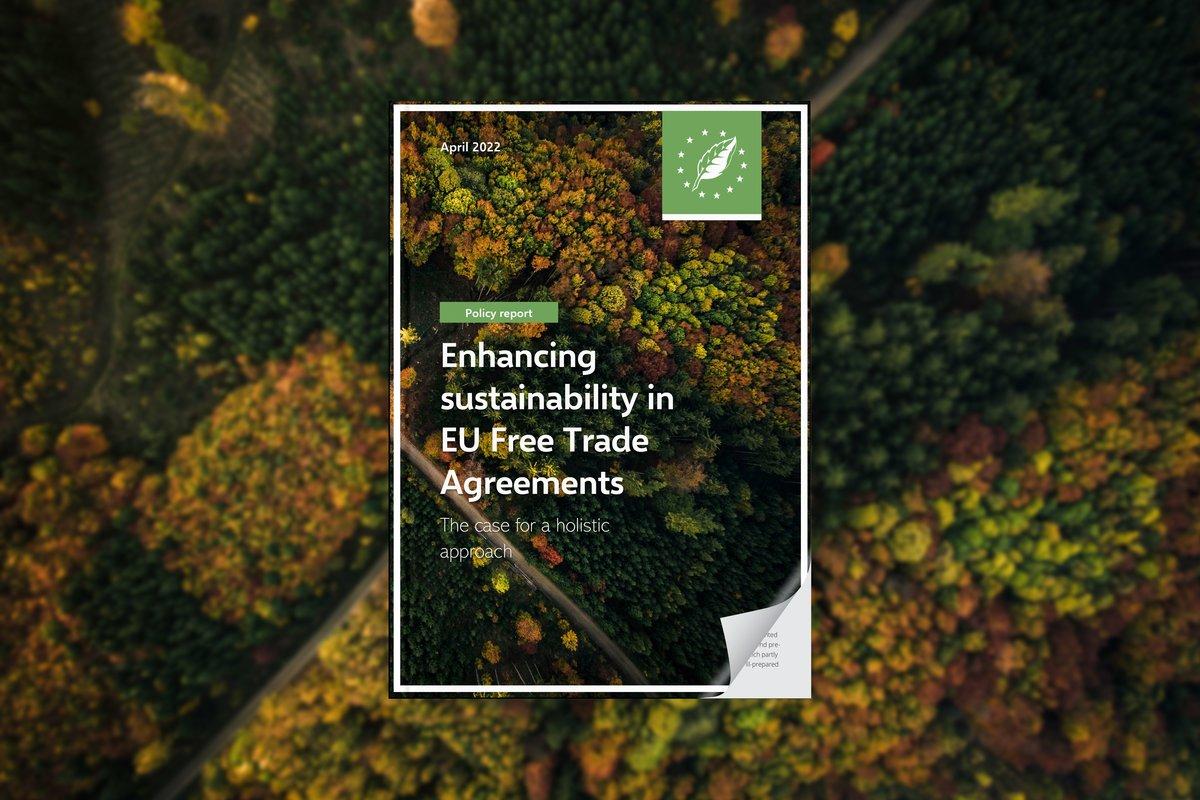AUTHORS: Eline Blot, Antoine Oger, James Harrison (University of Warwick)
This report takes stock of the current status of the EU trade policy and proposes a set of recommendations for EU bilateral trade to make a positive contribution to sustainability globally. IEEP aims to contribute to the debate on the review of the European Commission’s 15-points action plan to implement FTA TSD Chapters.
Trading relations with the European Union (EU) have a considerable impact on third countries, including on environmental and wider sustainability-related issues. The EU is gradually taking steps toward addressing this global issue, including through its bilateral relations which cover close to 40% of EU trade.
Provisions on trade and sustainable development were first introduced in EU Free Trade Agreements (FTAs) through a new Trade and Sustainable Development (TSD) Chapter during the EU-South Korea FTA negotiations in 2010. Furthermore, the European Green Deal, launched by the EC in 2019, highlighted the EU’s commitments to ‘greening’ the Union’s trade policy, with a promise to improve the mainstreaming of social and environmental sustainability concerns in the EU’s trade regime and in EU Free Trade Agreements (FTAs). The EGD was followed by a dedicated EU Trade Policy Review in early 2021, reaffirming the role of sustainability at the heart of EU’s trade regime. In parallel, the European Commission published a 15-point action plan for TSD Chapter implementation and enforcement in 2018.
Yet, despite these recent positive evolutions, the applicability, and therefore impact, of the TSD Chapters in EU FTAs remains largely questioned. This resulted in a further internal review of the 15-point action plan with the results expected to be published in June 2022. This report aims to feed into this debate and provide recommendations as to where TSD reform would be most impactful.
Legal basis, political commitment and demand from civil society exist for the EU trade relations in general, and its bilateral trade agreements in particular, to support the achievement of the Sustainable Development Goals internally, but also to deliver for sustainability globally. However, recent studies show that the EU generally outsources economic, social and environmental impacts abroad, notably through trade. There is therefore an urgent need to make EU trade and its impacts on global value chains more sustainable. Improving EU FTAs, both regarding the scope of their commitments toward sustainability and to their monitoring and enforcement mechanisms, is a crucial part of that objective as they encompass a large share of EU trade.
This report takes stock of the current status of the EU trade policy before looking at case studies to illustrate specific issues identified. It concludes by proposing three set of recommendations for EU bilateral trade to make a positive contribution to sustainability globally:
1. SIAs and Ex-post assessment processes
- SIAs and Ex-post assessments systematic and correlated to specific milestones of the FTA negotiations and implementation.
- Co-ownership of SIAs between relevant DGs
- Flanking measures to CGE modelling
- ‘Triggers’ clause to initiate a review of an agreement
- Involvement of trade partner countries in Ex-post assessments
2. FTA TSD Chapters
- “Tailor-made” TSD chapters for each trade agreement
- Stronger language in TSD provisions
- Binding framework to evaluate actual progress on commitments
- MEAs upgraded as essential elements
- Development of a Rapid Response Mechanism under FTAs
- Effective TSD dispute settlement process
- CTEO and SEP to effectively address TSD complaints
- Involvement of empowered civil society throughout the process
3. Unboxing sustainability from TSD Chapters
- Pre-agreements commitments
- Provisions throughout FTA for sustainable trade (i.e. differentiated tariffs, bans of harmful trade etc.)
- Financial support linked to sustainability commitments
- Alignment between FTA provisions & EU trade-related domestic measures
- Improve the capacity to review existing FTAs.

